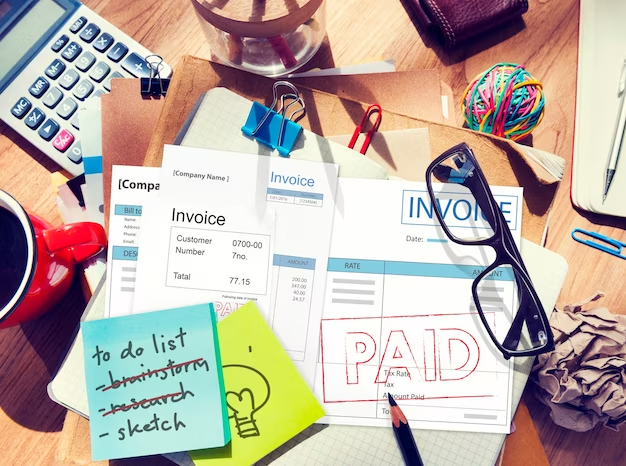If you’re struggling with IRS tax debt and facing financial hardships, applying for Currently Not Collectible (CNC) Status could be your choice. But, what exactly is it?
CNC status is a beneficial option provided by the Internal Revenue Service (IRS) that allows qualifying taxpayers to delay their tax payments due to financial difficulties. Understanding the guidelines for Currently Not Collectible status IRS can offer you valuable tax debt relief.
Not sure how to apply for a CNC status? Don’t worry, we’re here to help. Not only will we discuss the step-by-step process, but also its eligibility criteria, IRS forms, communication with the IRS, appeals, and getting help for tax debt and financial settlement services. And if you’re wondering how to file Currently Not Collectible with IRS, we’ve got you covered!
So, do you know what is Currently Not Collectible status with the IRS? Let’s find out!

Understanding CNC Status: Temporary Relief from IRS Tax Debt
IRS Currently Not Collectible Status (CNC) is a designation by the IRS for taxpayers who are experiencing severe financial hardship and are unable to pay their tax debt.
This status grants temporary relief, as the IRS will temporarily cease all collection activities, including levies and wage garnishments until the taxpayer’s financial situation improves.
It’s essential to understand that CNC status does not eliminate the tax debt but merely postpones collection efforts until the taxpayer’s financial condition stabilizes. This is a valuable lifeline for individuals and businesses facing financial distress, offering them the chance to regain their financial footing with tax debt management.
Eligibility Criteria for CNC Status
To qualify for CNC status, you have to show that paying your tax debt would give rise to significant financial hardship. The IRS goes through several factors, including income, expenses, assets, and liabilities, to determine eligibility. Some of the key criteria include:
– Limited Disposable Income: The IRS assesses the taxpayer’s disposable income to determine if it’s insufficient to meet both basic living expenses and tax obligations.
– Financial Hardship: Taxpayers must prove that paying their tax debt would result in severe financial hardship, leaving them unable to afford basic necessities like housing, food, and medical care.
– Tax Liability Limit: The total tax liability, including penalties and interest, should exceed the taxpayer’s ability to pay within a reasonable timeframe.
Meeting these criteria is vital to be considered for CNC status. Proper documentation and accurate information on IRS forms, such as Currently Not Collectible Form 433-F and IRS financial hardship form 433-F, are crucial to increase the chances of approval

Completing IRS Form 433-F: Collection Information Statement
Seeking Currently Not Collectible IRS status could provide temporary relief for those struggling with tax debt. And one of the critical steps in applying for CNC status is completing IRS Form 433-F, also known as the Collection Information Statement. This form gathers detailed financial information from the taxpayer, helping the IRS evaluate their financial situation.
The Collection Information Statement, Form 433-F, serves as a snapshot of the taxpayer’s financial condition and aids the IRS in determining their ability to pay. Seeking professional assistance from tax settlement services or tax consultancy services can be highly beneficial during this process, ensuring that the form is complete and accurate for IRS tax debt settlement help.
To help you navigate this process effectively, we’ve prepared a listicle that outlines everything you need to know about completing IRS Form 433-F.
- Understand the Purpose of Form 433-F:
IRS Form 433-F is designed to gather detailed financial information from taxpayers facing tax debt. The form helps the IRS evaluate your ability to pay and determines if you qualify for CNC status. By understanding the purpose of the form, you can provide accurate and relevant information.
- Gather Necessary Financial Documents:
Before you start filling out Form 433-F, ensure you have all the necessary financial documents on hand. These may include pay stubs, bank statements, mortgage statements, and other documentation related to your income, expenses, assets, and liabilities. Having these documents ready will make the process smoother.
- Provide Detailed Income Information:
Form 433-F requires you to provide detailed information about your income sources, such as wages, self-employment earnings, rental income, and any other sources of income.
- List Your Monthly Expenses:
On the form, you’ll need to list your monthly expenses, including housing, utilities, transportation, healthcare, and other essential living expenses.
- Disclose Assets and Liabilities:
Form 433-F also requires you to disclose your assets, such as property, vehicles, investments, and bank accounts. Additionally, you’ll need to list your liabilities, including outstanding debts, loans, and credit card balances.
- Be Honest and Accurate:
When completing Form 433-F, honesty is paramount. Providing inaccurate or misleading information could lead to delays in processing your application or even denial of CNC status.
- Seek Professional Assistance if Necessary:
Filling out IRS Form 433-F can be complex, especially if you have a complicated financial situation. If you’re unsure about any part of the form or need guidance, consider seeking professional assistance from tax debt and financial settlement services.
- Attach Additional Documentation, if Required:
Depending on your financial situation, the IRS may request additional documentation to support your CNC status application. If asked, promptly provide the necessary documents to avoid delays.
- Review and Double-Check:
Before submitting your completed Form 433-F, review all the information you provided. Double-check for accuracy and completeness. Any errors or omissions could affect the IRS’s decision on your CNC status application.

Communication with the IRS & Understanding IRS Response with Next Steps
After submitting the completed Form 433-F and the CNC application, the IRS will review the information provided. During this evaluation, it’s essential to maintain open communication with the IRS. Respond promptly to any additional inquiries or requests for documentation. The IRS may request further information to verify the financial hardship claim, and understanding IRS Currently Not Collectible rules is essential.
Understanding the IRS response is crucial. If the application is approved, the IRS will notify the taxpayer of their CNC status, and collection activities will be temporarily suspended.
However, if the application is denied, the IRS will provide reasons for the decision. If your application is denied, you have the right to appeal IRS decision on Currently Not Collectible status. Learn how to respond to IRS notice effectively so that it becomes easy to navigate tax debt challenges.
Appealing a Denied CNC Application
The IRS appeal rights allow individuals to present their cases before an independent officer, ensuring a fair review of the application. Appealing an IRS decision requires adherence to specific guidelines and deadlines, so it’s advisable to seek professional assistance during this stage.
Receiving a denial for your IRS Currently Not Collectible (CNC) status application can be disheartening, but don’t lose hope. You have the right to appeal the IRS decision. Here’s a concise guide to help you navigate the appeal process effectively:
- Understand the Reason for Denial: Carefully review the IRS communication to identify the specific reasons for the denial. Understanding the issues will help you address them in your appeal.
- File a Written Protest: Prepare a properly written protest that addresses each reason for denial. Be clear and concise in explaining why you disagree with the decision.
- Provide Additional Information: Include any new or updated financial information that supports your claim for financial hardship.
- Gather Supporting Documents: Attach relevant documentation, such as pay stubs, medical bills, or other evidence of your financial situation.
- Submit the Appeal Promptly: Adhere to the IRS deadline for filing an appeal. Delaying the process might limit your options.
- Consider Professional Assistance: If you find the appeal process overwhelming, seek help from tax debt experts. They can craft a compelling appeal on your behalf. IRS tax debt settlement help is available for individuals seeking Currently Not Collectible status.
- Follow Up with the IRS: Stay proactive and responsive during the appeal process. Be prepared to address any further inquiries from the IRS.
- Know Your Appeal Rights: Familiarize yourself with your rights as a taxpayer, including the right to an independent appeal officer.
Also, effective tax debt management is crucial when seeking Currently Not Collectible status with the IRS.

Seeking Professional Assistance for CNC Application
Navigating the CNC application process can be complex and overwhelming, especially during times of financial distress.
Seeking professional assistance from tax settlement services can be highly beneficial. These experts can guide taxpayers through the entire process, ensuring accurate and timely completion of IRS forms and documentation.
Tax consultancy services can analyze the taxpayer’s financial situation, identifying the best approach to apply for CNC status. These experts can present the financial information in a manner that aligns with IRS requirements, increasing the chances of approval. Additionally, they can provide valuable advice on tax debt relief, financial hardship options, and IRS appeal rights.
Applying for Currently Not Collectible (CNC) Status is a legitimate option for taxpayers facing financial hardship. By understanding the eligibility criteria, completing the necessary IRS Currently Not Collectible form 433-f accurately, and seeking professional assistance when needed, individuals and businesses can navigate this challenging situation with confidence.
Final Thoughts
Currently Not Collectible (CNC) Status is a lifeline for taxpayers struggling with IRS tax debt and financial hardship. By following the step-by-step process, which includes understanding CNC status and completing IRS Form 433-F, individuals and businesses can steer this challenging situation with confidence.
Remember to be thorough and accurate while completing the necessary IRS forms, such as Currently Not Collectible form 433-f and IRS financial hardship form 433-f, as this significantly impacts the application’s success. For expert assistance with tax debt and financial settlement services, rely on reputable professionals.
To be frank, efficient tax management services play a crucial role in seeking financial relief and Currently Not Collectible status. Remember, the IRS is there to assist, and with the right approach, you can find the support you need for IRS tax debt relief.
